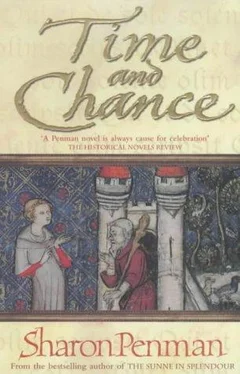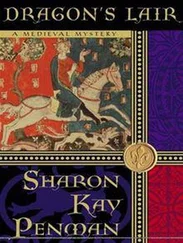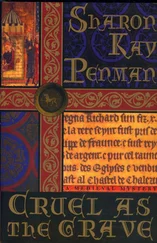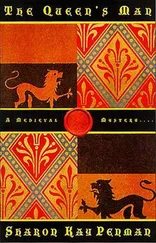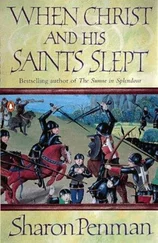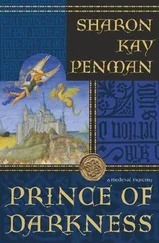Sharon Penman - Time and Chance
Здесь есть возможность читать онлайн «Sharon Penman - Time and Chance» весь текст электронной книги совершенно бесплатно (целиком полную версию без сокращений). В некоторых случаях можно слушать аудио, скачать через торрент в формате fb2 и присутствует краткое содержание. Жанр: Исторические приключения, на английском языке. Описание произведения, (предисловие) а так же отзывы посетителей доступны на портале библиотеки ЛибКат.
- Название:Time and Chance
- Автор:
- Жанр:
- Год:неизвестен
- ISBN:нет данных
- Рейтинг книги:4 / 5. Голосов: 1
-
Избранное:Добавить в избранное
- Отзывы:
-
Ваша оценка:
- 80
- 1
- 2
- 3
- 4
- 5
Time and Chance: краткое содержание, описание и аннотация
Предлагаем к чтению аннотацию, описание, краткое содержание или предисловие (зависит от того, что написал сам автор книги «Time and Chance»). Если вы не нашли необходимую информацию о книге — напишите в комментариях, мы постараемся отыскать её.
Time and Chance — читать онлайн бесплатно полную книгу (весь текст) целиком
Ниже представлен текст книги, разбитый по страницам. Система сохранения места последней прочитанной страницы, позволяет с удобством читать онлайн бесплатно книгу «Time and Chance», без необходимости каждый раз заново искать на чём Вы остановились. Поставьте закладку, и сможете в любой момент перейти на страницу, на которой закончили чтение.
Интервал:
Закладка:
Even the most irreverent of her lords could not suppress a shiver, for there were few crimes more sacrilegious than the killing of an archbishop in his own church. Once the initial shock passed, not all were displeased by the news. No one had yet asked the fateful question, but in a sense, it was not even necessary. Whether Becket had died at the English king’s connivance or not, the blame would still be laid at Henry’s throne.
“The killers were four English knights, some of whom may be known to you,” Eleanor said dispassionately, “Hugh de Morville, William de Tracy, Reginald Fitz Urse, and Richard le Bret. The de Brocs were involved, too, although they apparently took no role in the actual slaying. They claimed that they were doing the king’s bidding. That is not true.”
They already knew that was so, for she’d reported that her husband’s decision at Bures had been to demand that Becket absolve the English bishops or face arrest. A few speculated whether an assassination order might have been given without her knowledge, but none were foolhardy enough to suggest that. It was left to her trusted confidant and seneschal, Saldebreuil de Sanzay, to give voice to the other truth, the obvious truth.
“I do not doubt that, Madame,” he said. “But it may not matter. Lord Henry’s enemies will care only that a weapon of incomparable sharpness has been delivered into their hands.”
“I know,” she acknowledged, and for a fleeting moment, she allowed her frustration and dismay to show. “What monumental, unforgivable folly…”
It was then that Richard emerged from hiding. Eleanor stiffened at the sight of her son, but she did not send him away; it was too late for that. Richard had experienced a growth spurt that autumn and it was a minor surprise to realize that his eyes were level with her own, that it was like looking into her husband’s eyes, clear and sea-grey and impenetrable.
“Will men blame my father for this killing?”
Eleanor was not going to lie to him, not to Richard. “Yes,” she said, “I fear that they will,” and he nodded, apparently satisfied by her candor. What he thought about Becket’s murder, she did not know, would not know unless he chose to tell her.
Raoul dared then to pose the question that many of them were wondering. It had not escaped him that she’d been ambiguous about the source of her information. He suspected that if she’d heard of the murder from Henry himself, she would have said so, which meant that the rumors of marital strife were becoming more and more credible. Nothing could please him more, but he took care to keep his voice perfectly neutral as he asked, “My lady… will you go to the king at Argentan?”
Eleanor was not fooled by the detachment of his query; she well knew the depths of enmity between her husband and uncle. She regarded Raoul pensively, trying to decide if she should answer honestly, answer at all. “Yes,” she said, very evenly, “… if he sends for me.”
“My lamb, you must cease your weeping. You’ll sicken upon your tears if you do not.”
Rosamund paid no heed to Meliora’s commiseration, continuing to sob into a sodden pillow. Meliora sat down heavily beside her, reaching out a hand to stroke the tousled fair hair. She had tried to keep the news of the archbishop’s murder from Rosamund, but the story was spreading faster than wildfire, on everyone’s lips, the topic of all conversation in the streets of Falaise. She did not doubt that this heinous crime would rock Christendom to its very foundations.
“Men are saying he did this, that he gave the command…” Rosamund sobbed again, then hiccuped. Her beautiful blue eyes were swollen to slits, puffy and sore. She knew Meliora was right, that she was making herself sick. But she could not control her tears, her grief, or her fear. “He would never have done that, Meliora, never!”
“I know, lamb, I know,” Meliora said soothingly, while hoping that Rosamund’s faith in her royal lover would not be shaken, or worse, betrayed.
“If only he would send for me, Meliora…” Rosamund shifted so that her head was in the other woman’s lap, taking faint comfort in these maternal attentions, an unknown luxury in the Clifford family. “If only I could go to him! He is heartsick about the archbishop’s death, I know he is. And I can do nothing to help, nothing…”
From a letter of Louis, King of the French, to Pope Alexander: “Let the sword of St Peter be unsheathed to avenge the martyr of Canterbury…”
From a letter of William, Archbishop of Sens, to Pope Alexander: “Avenge, O Lord, the blood of thy servant and martyr, the Archbishop of Canterbury, who has been slain, nay, crucified, for the liberties of the Church…”
From a letter of Theobald, Count of Blois, to Pope Alexander: “Those dogs of the court… showed themselves true servants of the king, and guiltily shed innocent blood… May then, Holy Father, the Almighty aid and counsel you… May He both instill into you a wish for vengeance and the power of obtaining it, so that the Church, put to confusion by the magnitude of this unheard-of crime, may have reason to rejoice…”
From another letter of William, Archbishop of Sens, to Pope Alexander: “And indeed, I believe that the outcry of the world must have filled the ears of Your Holinesss, how that this, not King of the English, but enemy rather of the English and of the whole body of Christ, has lately committed wickedness against the holy one… For this crime is one that by far deserves the first place among all the crimes of the wicked that are read or related; as all the wickedness of Nero, the perfidiousness of Julian, and even the sacrilegious treachery of Judas does it exceed…”
The Bishop of Worcester was taken at once to the king’s solar, where he was greeted by a trinity of churchmen: Rotrou of Rouen, Arnulf of Lisieux, and Giles of Evreux. His mantle was wet with melting snow and sleet, for Argentan was in the grip of an icy January storm. They hovered around him, fatherly and concerned, offering to find dry, warm garments, to provide food, mulled wine. Roger brushed off their suggestions with terse courtesy; he did not want their solicitude.
“I do not know why I am here,” he said, and Rotrou began to describe the king’s anguish. Arnulf cut him off, understanding what Roger was really saying.
“It is possible,” he said, “to mourn for the archbishop without forsaking your cousin the king.”
“Is it?” Roger asked bleakly and Arnulf shrugged.
“You are here, are you not?”
“Yes,” Roger admitted, “I am…” Pulling off his mantle, he flung it across a chair. “Tell me why you think I can help.”
“If you cannot,” Arnulf said bluntly, “I fear for the life of the king.” Roger’s left eyebrow shot up in a skeptical arch that was uncannily like Henry’s. “Is his grief as great as that? Or his guilt?”
Arnulf shrugged again. “I suspect they are horns on the same goat. I can tell you, though, that his sorrow is very real. He has been secluded in his bedchamber for more than three days now, refusing to admit anyone, refusing to eat, to accept any comfort at all.”
“The queen is not here?”
Rotrou shook his head. “Would that she were, but she and the king parted after Christmas, he riding north and she returning to Poitou.”
They were watching him hopefully, expectantly. Roger stalked to the hearth, held his hands out toward its warmth. “Ask him,” he said, “if he’ll see me.”
The chamber was dark, shutters latched, candles and lamps quenched. It was cold, too, for the hearth fire had gone out, only a few feeble embers still aglow. Roger was blind, unable to see anything but blackness. “Harry?” There was no reply and he waited until his eyes adjusted to the lack of light, until he could discern a motionless figure in a window seat. He hesitated and then carefully crossed the room and sat down beside Henry.
Читать дальшеИнтервал:
Закладка:
Похожие книги на «Time and Chance»
Представляем Вашему вниманию похожие книги на «Time and Chance» списком для выбора. Мы отобрали схожую по названию и смыслу литературу в надежде предоставить читателям больше вариантов отыскать новые, интересные, ещё непрочитанные произведения.
Обсуждение, отзывы о книге «Time and Chance» и просто собственные мнения читателей. Оставьте ваши комментарии, напишите, что Вы думаете о произведении, его смысле или главных героях. Укажите что конкретно понравилось, а что нет, и почему Вы так считаете.
